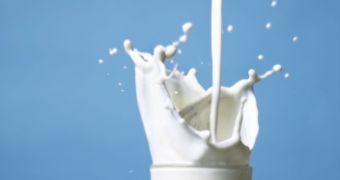You may depreciate creeping creatures like snakes and lizards, but the first mammals, the group which humans belong to, evolved from egg-laying reptiles. By feeding the young with milk, mammals skipped the yolk diet and the egg stage in their development. A new research published in the journal "PLoS Biology" has tracked down the period when this shift occurred.
Mammals have some specific physical features, like hair (even nude mammals like dolphins, whales and naked mole rats evolved from hairy ancestors), 3 bones in their middle ear (that amplify sound), a cerebral neocortex (controlling higher brain functions) and milk production.
"The reason we're known as mammals is because of our mammary glands," said co-author Henrik Kaessmann, an evolutionary biologist at the University of Lausanne in Switzerland.
The research team focused on genes connected to eggs and milk. Today, there are three mammal groups. Placental mammals comprise most living mammals (humans included). Marsupials are restricted nowadays to Australia and South America (one species, the possum, enters North America). The egg-laying monotremes are restricted to Australia, being represented by platypuses and echidnas.
The genes of species from these three lineages were compared to those of chickens (egg-laying and milkless). The researchers assessed the mutational clock, the rhythm at which mutations accumulate in the genome.
Genes for milk proteins (caseins) were found to have appeared in the common ancestor of all mammals 200 to 310 million years ago. Oppositely, genes for vitellogenins (egg yolk proteins) were gradually mutated mammals, except the monotremes, only 30 to 70 million years ago.
The 3 genes for vitellogenins encountered in the chicken were mutated (silenced) in placentals and marsupials, and only one is still functional in monotremes (they still lay eggs and guard some yolk proteins.)
"The evolution of milk reduced the need that mammal offspring had for the nutrients in the yolk, and therefore reduced the need for eggs. Eventually, marsupials and placentals abandoned egg-laying completely, leading genes linked with egg yolk to mutate and stop functioning over time," wrote the authors.

 14 DAY TRIAL //
14 DAY TRIAL //